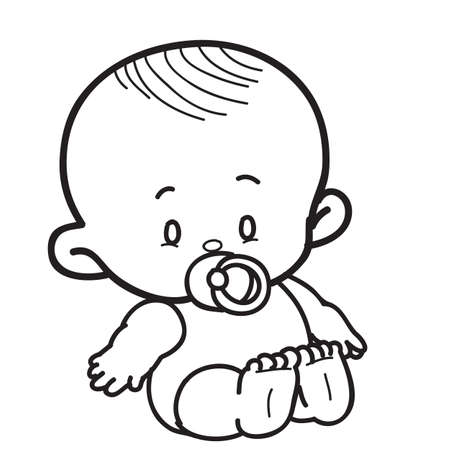Understanding the Role of the Health Visitor
In the UK, a health visitor plays a pivotal role in supporting families with young children, especially during your baby’s first year. Health visitors are registered nurses or midwives who have undertaken additional training in community public health nursing. Their main responsibility is to provide expert advice, guidance, and practical support to new parents and their babies, helping you navigate the early stages of your childs life with confidence.
Health visitors work closely with families to ensure the best possible start for every child. They visit you at home or invite you to local clinics to discuss a wide range of topics including infant feeding, sleep routines, growth monitoring, vaccinations, and emotional wellbeing. Their holistic approach covers not only your babys physical health but also social and developmental needs, as well as offering support for maternal mental health.
Typical Qualifications and Training
| Qualification | Description |
|---|---|
| Registered Nurse or Midwife | Completed Nursing and Midwifery Council (NMC) registration |
| Specialist Community Public Health Nursing (SCPHN) | Postgraduate qualification specific to health visiting |
| Ongoing Professional Development | Regular training in child health, safeguarding, nutrition, and family support |
How Health Visitors Support New Parents
- Offer evidence-based advice on feeding (breastfeeding and formula), weaning, and nutrition
- Monitor baby’s growth and development using the Personal Child Health Record (the “Red Book”)
- Provide emotional support for parents, including postnatal mental health guidance
- Advise on immunisations and common childhood illnesses
- Signpost to local resources such as parenting groups or specialist services if needed
- Promote healthy lifestyle choices for the whole family
Your health visitor is there as a friendly professional to answer any questions you may have and to help you feel confident in caring for your baby. Understanding their role can help you prepare for your first visit and make the most of this valuable support network.
2. What to Expect During the First Visit
The first home visit from your health visitor is an important milestone for both you and your baby. Typically, this visit takes place within 10 to 14 days after your baby is born. Health visitors are registered nurses or midwives with specialist training in family and child health, and their role is to support you and your family during the early years of your childs life.
Format of the Initial Visit
During the first visit, the health visitor will usually come to your home. This helps create a relaxed environment where you and your baby feel comfortable. The appointment typically lasts between 45 minutes to an hour, depending on any questions or concerns you may have. Partners and other caregivers are welcome to join the discussion if available.
Main Topics Covered
The initial visit is comprehensive, focusing on both your babys health and your wellbeing as new parents. The health visitor will cover several key topics:
| Main Topic | Details |
|---|---|
| Infant Growth & Development | Checking weight, length, head circumference; discussing developmental milestones |
| Feeding Advice | Breastfeeding, formula feeding tips, safe preparation and storage of milk |
| Safe Sleep Guidance | Advice on sleep positions, cot safety, reducing the risk of SIDS (Sudden Infant Death Syndrome) |
| Immunisation Schedule | Information about upcoming vaccinations and what to expect at each stage |
| Parental Wellbeing | Support for mental health, recognising signs of postnatal depression, coping strategies for new parents |
| Home Safety Tips | Identifying potential hazards around the home, advice on baby-proofing rooms |
| Community Resources | Signposting local clinics, support groups, baby classes and online resources for parents in the UK |
Personalised Support and Questions
Your health visitor will encourage you to share any worries or questions you may have about caring for your baby or adjusting to parenthood. They may also observe how you interact with your baby and offer tailored advice based on your familys needs.

3. Preparing Your Home for the Visit
Getting your home ready for your baby’s first health visitor appointment doesn’t have to be stressful. Health visitors are there to offer support and advice, not to judge your housekeeping. However, a bit of preparation can help the visit run smoothly and ensure you feel confident welcoming them into your home.
Practical Advice for a Smooth Visit
Health visitors understand that life with a newborn can be busy and sometimes chaotic. They are not expecting perfection, but it can be helpful to create a calm environment where you’ll feel comfortable asking questions and discussing your baby’s needs. Here are some practical tips:
- Choose a comfortable space: Decide where you’d like to sit during the visit, such as your living room or kitchen table.
- Ensure easy access: Make sure the health visitor can easily get to the front door and into your home.
- Have essentials to hand: Keep your baby’s Red Book (Personal Child Health Record), any recent hospital discharge notes, and a list of questions nearby.
- Tidy up if you wish: A quick tidy-up of main areas is fine, but don’t worry about deep cleaning—health visitors truly understand new parents’ realities!
- Consider feeding time: If possible, try to schedule the visit at a time when your baby is likely to be calm or fed, but don’t worry if things don’t go exactly to plan.
Checklist: What You Might Need on Hand
| Item | Why Its Helpful |
|---|---|
| Red Book (Personal Child Health Record) | This is where growth and development will be recorded. |
| Nappies & wipes | Your health visitor may weigh your baby or check nappy contents. |
| Bottle or breast milk supplies | If your baby needs feeding during the visit, have these close by. |
| A list of questions or concerns | Easier to remember everything you want to ask. |
| Your own notes on feeding/sleeping patterns | If you’re tracking routines, these can help answer questions. |
| Any medications for baby or mum | The health visitor may ask about any medicines currently being taken. |
What Doesn’t Need Preparing?
You don’t need to prepare snacks or drinks for the health visitor—they will bring anything they require. There’s also no need to dress up yourself or your baby; comfort comes first. Remember, their role is supportive, not judgmental, and their focus is on you and your child’s wellbeing.
Key Takeaway
A little preparation can help make your first health visitor appointment more relaxed and productive. Focus on having essential items handy and creating a comfortable space—you don’t need to do anything extra special for their arrival!
4. Key Documents and Information to Have Ready
Being organised for your baby’s first health visitor appointment can help the visit go smoothly and ensure all your questions are addressed. Below is a checklist of key documents and information you should have on hand, with explanations relevant to families across the UK.
Essential Items Checklist
| Document/Information | Why Its Needed |
|---|---|
| Personal Child Health Record (Red Book) | This booklet is provided by the NHS at birth and contains your babys health history, weight charts, immunisations, and developmental milestones. Health visitors will update it during each visit. |
| Feeding Routine Details | Record your babys feeding schedule (breastfeeding, formula, or mixed), frequency, and any concerns. This helps the health visitor assess nutritional status and offer tailored advice. |
| Nappy Changing Log | A note of how many wet and dirty nappies per day can indicate hydration and digestive health, which the health visitor may ask about. |
| Immunisation Record | If not already in the Red Book, have a list of immunisations received to date to discuss future schedules. |
| Medication List | If your baby is taking any prescribed or over-the-counter medicines, bring a current list including dosages. |
| Questions & Concerns List | Write down any questions or worries you have about your baby’s feeding, sleeping, development, or general wellbeing so nothing gets forgotten during the appointment. |
| Family Medical History (if relevant) | If there are any hereditary conditions or allergies in the family, make a note as these may be important for ongoing care. |
Tips for Organising Your Information
- Keep everything together: Store your Red Book, notes, and any supporting documents in one folder or bag that’s easy to grab before appointments.
- Update regularly: Make brief notes after each feed or nappy change in the days leading up to the visit for accurate reporting.
- Be honest: Share all relevant information with your health visitor—there are no silly questions when it comes to your baby’s health.
Why This Preparation Matters
The more prepared you are with documentation and details about your babys routines, the more effective your health visitor can be in providing practical support. This approach aligns with best practices recommended by the NHS and ensures continuity of care throughout your childs early years.
5. Questions You May Want to Ask
When your health visitor comes for the first visit, it’s a valuable opportunity to discuss any concerns and gather information tailored to your baby’s needs. Here are some suggested questions you might consider asking, organised by topic:
Feeding and Nutrition
| Topic | Example Questions |
|---|---|
| Breastfeeding Support | Are there local breastfeeding support groups or clinics? How can I tell if my baby is feeding well? |
| Formula Feeding | What type of formula do you recommend? How much should my baby be drinking per day? |
| Weaning Guidance | When should I start introducing solid foods? Are there local weaning workshops available? |
Sleep and Routine
- What is a typical sleep pattern for babies at this age?
- Do you have tips for establishing a safe sleep environment?
- How can I encourage better napping during the day?
Immunisations and Health Checks
- Which immunisations are due soon, and where are they given locally?
- How can I manage side effects after vaccinations?
- What developmental milestones should I look out for in the coming months?
Local Resources and Support Services
| Resource Type | Questions to Ask |
|---|---|
| Parent Groups & Classes | Are there any baby groups or classes nearby that you’d recommend? |
| Mental Health Support | If I’m feeling overwhelmed, what mental health resources are available for new parents in our area? |
| Nutritional Advice | Where can I access reliable guidance on infant nutrition specific to UK recommendations? |
Practical Tips for Your Visit
- Write down your questions beforehand so you don’t forget anything important.
- If English isn’t your first language, ask about translation services or bring a family member who can help interpret.
- You’re welcome to make notes during the visit—this can help you remember advice and next steps.
6. Frequently Asked Questions About Health Visitor Visits
Understanding the Health Visitor System
The health visitor service is a cornerstone of child health support in the UK, offering guidance and reassurance for new parents. Below are answers to some of the most frequently asked questions about how the system works, what you can expect, and how your privacy is protected.
Common Parent Queries
| Question | Answer |
|---|---|
| Who is my health visitor and how are they assigned? | Your health visitor is a qualified nurse or midwife with specialist training in family and child health. They are usually allocated based on your local NHS trust after your baby’s birth. |
| What topics will the health visitor discuss during the first visit? | They typically cover feeding, sleeping, safe sleeping guidance, immunisations, baby’s development milestones, and parental wellbeing. |
| Is everything I share with my health visitor confidential? | Yes, all information shared is confidential within healthcare guidelines. Only relevant professionals involved in your care may access it if necessary for safeguarding or health concerns. |
| Do I have to follow all advice given by the health visitor? | No, their role is to offer evidence-based advice and support. You have autonomy over decisions regarding your child’s care, but following recommended guidelines can promote optimal health outcomes. |
| How often will I see the health visitor? | The universal schedule includes visits at 10-14 days after birth, 6-8 weeks, 9-12 months, and 2-2½ years. Additional visits may be arranged if extra support is needed. |
| Can I request a different health visitor? | If you feel uncomfortable or have concerns, contact your GP practice or local health visiting team to discuss possible reassignment. |
Privacy Concerns
Your privacy matters. Health visitors work under strict NHS confidentiality policies. If you wish to discuss sensitive issues in private or prefer not to have certain information shared with other family members present during visits, inform your health visitor beforehand so arrangements can be made.
Follow-Up Visits and Ongoing Support
If any concerns are identified during the initial visit—such as feeding difficulties or developmental queries—the health visitor will provide tailored advice and may schedule additional visits or refer you to other local services (e.g., infant feeding clinics, speech therapy). Remember, ongoing support is available; don’t hesitate to reach out between scheduled visits if you have questions or worries about your baby’s wellbeing.


